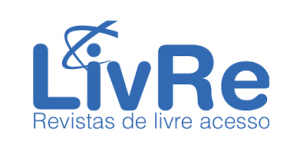The educational gap paradox in the right to education for all: reflections on the Brazilian historical heritage.
Abstract
This article aims to bring observations about the right to education in the country, briefly covering different historical periods, such as colonial Brazil, empire, republic, military dictatorship and the present. Through this approach, the objective is to understand the changes and continuities in the legislative development related to education throughout history, with the aim of identifying gaps in educational laws and State guidelines added to the existence of an administrative obstacle. This situation generates a mismatch between legislation on education and the State's role in promoting educational collectivity, because, even if it seeks to provide universal education, it ends up evolving in an illusory way, that is, it seems to exist in an idealized way, however, in practice it is not fully due to limitations and shortcomings in implementation. These legislative changes in the right to education throughout history are extremely important for discussion, considering its social conversion, since the existence of a deficit of public policies that promote competitive equality in education is remarkable, which represents an elitist bias. rooted in the education system.
Downloads
Published
How to Cite
Issue
Section
License
Copyright (c) 2024 A REVISTA REFLEXÃO E CRÍTICA DO DIREITO utiliza uma licença Creative Commons - Atribuição-Não Comercial BY-NC 4.0 Internacional. Os autores dos trabalhos aprovados autorizam a revista a, após a publicação, ceder seu conteúdo para reprodução em indexadores de conteúdo, bibliotecas virtuais e similares. A revista se permite o uso dos trabalhos publicados para fins não comerciais, incluindo o direito de enviar o trabalho para bases de dados de acesso público.

This work is licensed under a Creative Commons Attribution-NonCommercial 4.0 International License.
A submissão de artigos à REVISTA REFLEXÃO E CRÍTICA DO DIREITO está vinculada à licença da Creative Commons CC BY-NC 4.0 internacional. Através desta licença, o autor mantém seus direitos autorais, mas permite, para fins não comerciais, que as pessoas possam copiar e distribuir o seu trabalho, reservando os respectivos créditos, nas condições especificadas.
Ao submeter artigos à REVISTA REFLEXÃO E CRÍTICA DO DIREITO o (a) autor (a) já autoriza sua publicação, em caso de aceitação, após o devido processo de avaliação, ciente da política de acesso livre do periódico.
O autor (a) declara ciência de que serão publicadas todas as informações consignadas na submissão, incluindo nome, afiliação, titulação e endereço eletrônico.
Da mesma forma, o interessado, ao submeter o trabalho no site da revista, DECLARA QUE É AUTOR (A) DO TRABALHO, BEM COMO DO VÍNCULO DAS DEMAIS PESSOAS TAMBÉM APONTADAS COMO AUTORAS, assumindo inteira responsabilidade por tais declarações.
O periódico não cobra nenhum tipo de taxa. Todas as submissões, avaliações e publicações são gratuitas, bem como o seu acesso é aberto e também gratuíto.







